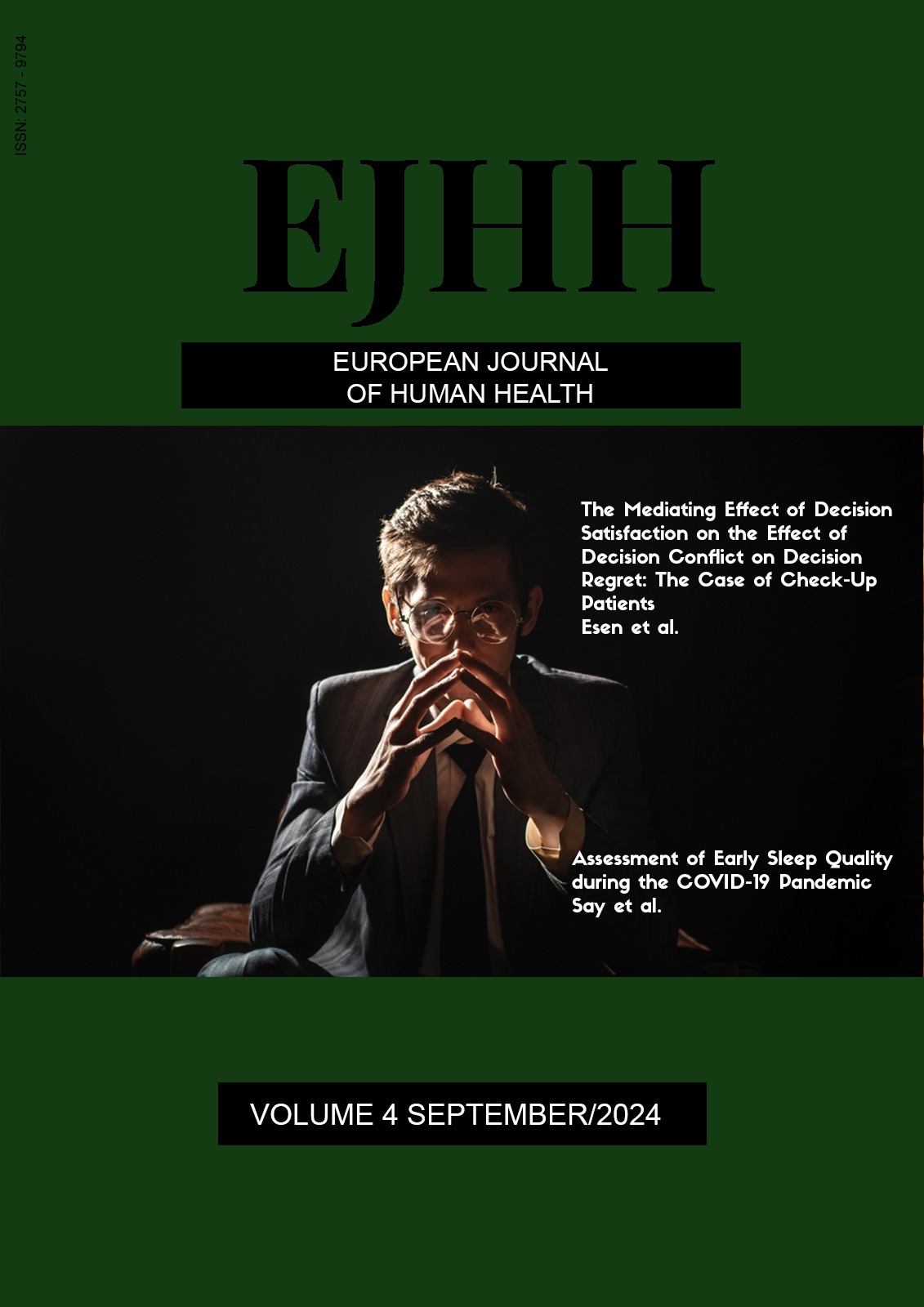Author :
Abstract
Keywords
Abstract
Aim: The aim of the study was to evaluate the relationship between COVID-19 and early sleep quality and to
reveal the influencing factors.
Methods: This cross-sectional study included 443 participants. The COVID-19 history and sociodemographic
characteristics of the participants were evaluated, and the Pittsburgh Sleep Quality Index (PSQI) was
administered.
Results: The participants included 234 (52.8%) women and 209 (47.2%) men, and the mean age was 40.7±13.7
years. The mean PSQI scores of the participants were 3.7±4.1 and 220 (49.7%) had poor sleep quality. Individuals
who had been infected with COVID-19 had significantly worse sleep quality compared to those who have never
been infected or those who had only been in contact (p=0.015). The Multivariate Binary Logistic Regression
Analysis found that female gender and actively working improved sleep quality (p=0.013, p=0.039). It was also
determined that COVID-19 infection history resulted in poor sleep quality (p=0.010).
Conclusions: COVID-19 infection was associated with worse sleep quality in the early period compared to those
who had not been infected or had only been in contact. With holistic approach modeling, family physicians should
conduct screenings using appropriate scales to evaluate the quality of life of disadvantaged groups in primary
care, and the relevant segments of society, especially health professionals, should be encouraged to increase the
quality of life of the individuals at risk.





